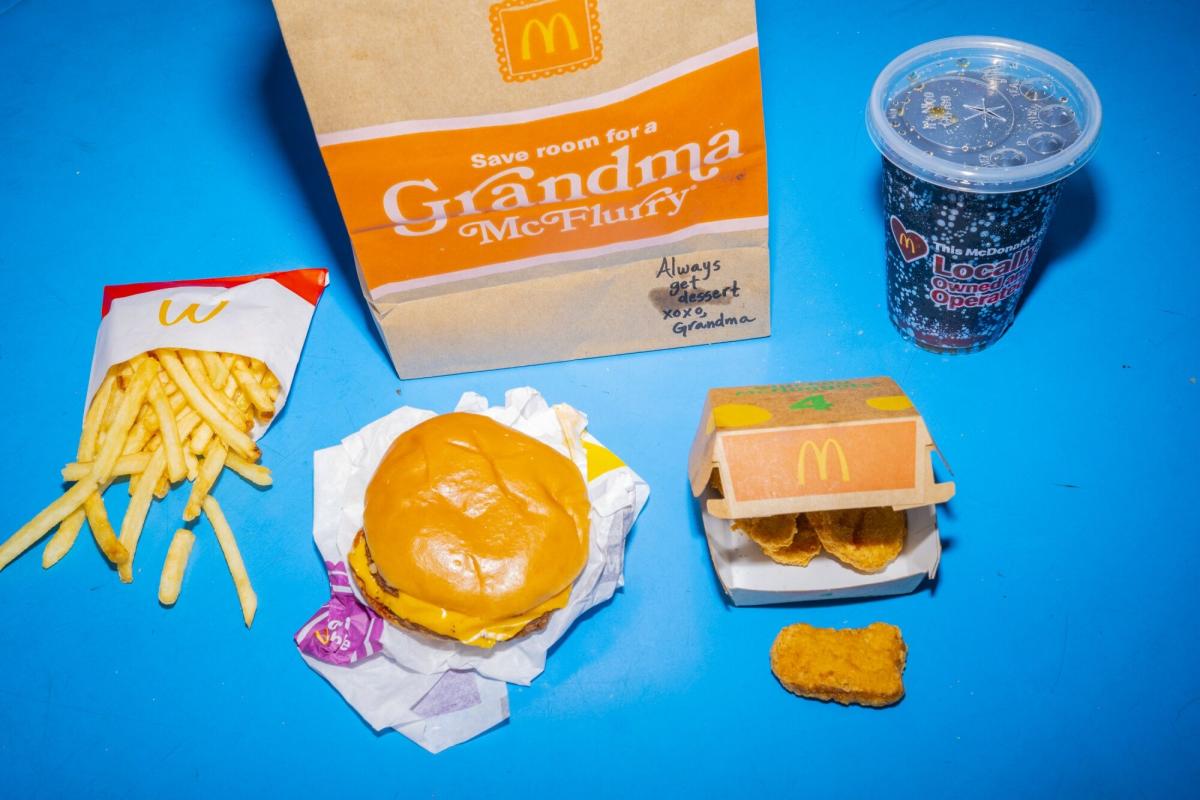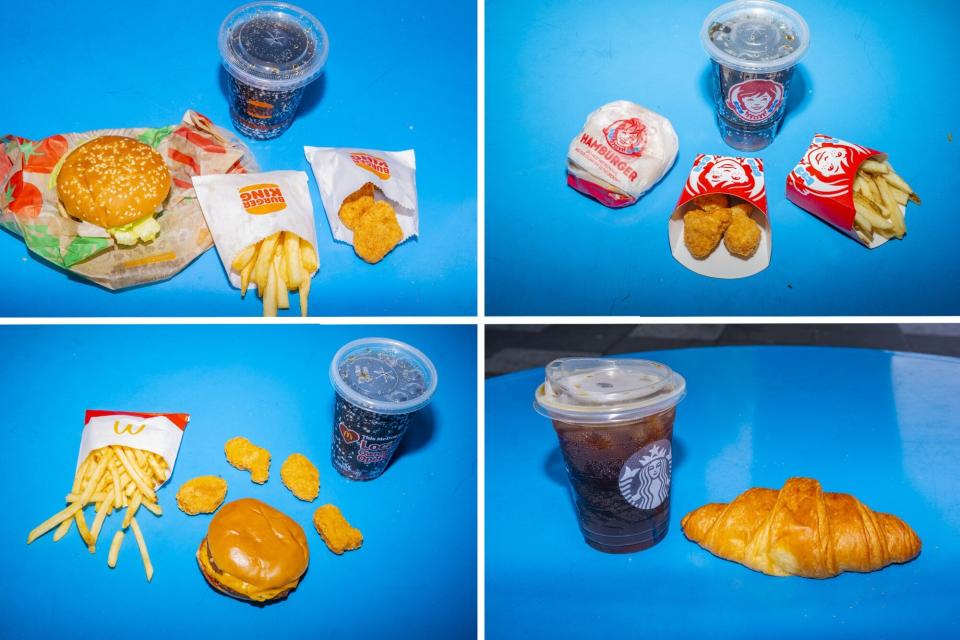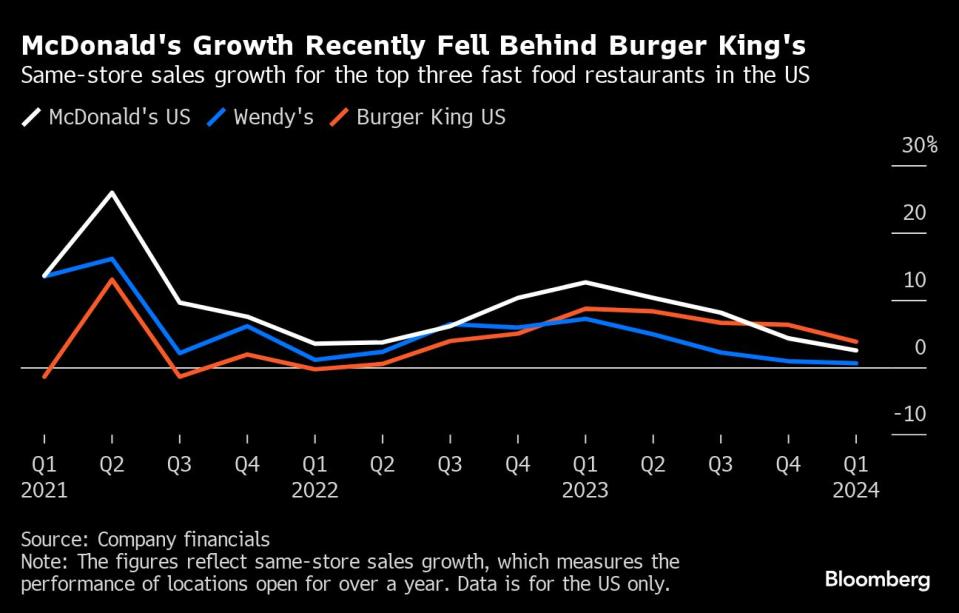Bussiness
McDonald’s $5 Value Meal Intensifies a Fast Food Price War

(Bloomberg) — McDonald’s (MCD) Corp.’s US chief says the company is ready for a fight.
Most Read from Bloomberg
And in order to win, the burger chain is pulling out one of the most potent weapons in its arsenal: The value meal. It’s all part of a bid to lure back penny-pinching customers who have cut back on fast food after flocking to the Golden Arches in recent years.
On June 25, McDonald’s will kick off a marketing campaign and a new $5 meal deal, raising the stakes as US restaurants vie to lure back inflation-weary diners.
“We’re committed to winning the value war,” Joe Erlinger, president of McDonald’s US, said in an interview with Bloomberg News.
Last month, after Bloomberg News reported on McDonald’s plans for the $5 promotion, competitors came back with their own deals — and insults.
Burger King’s US president pledged to roll out its $5 value meal “before they do,” alluding to McDonald’s in a memo to franchisees. Wendy’s (WEN) Co. pushed out a $3 breakfast offer and took to social media to mock its competitors for copying its ideas. Even Starbucks (SBUX), known for its pricey Frappuccinos and lattes, said it would offer a $6 breakfast sandwich and coffee combo.
When asked about his adversaries, Erlinger smiled and said he isn’t fixated on the competition.
As the largest restaurant chain in the US by sales, he said McDonald’s size and marketing muscle gives the $130 billion company an edge over smaller rivals and the ability to reduce any hit to franchisee profits. “Think about our scale,” he said, noting that the incremental cost of adding fries and a drink to a sandwich was minimal. The $5 deal includes a McDouble or McChicken sandwich, small fries, four-piece chicken nuggets and a small soft drink.

Franchisees, who operate the majority of McDonald’s stores, don’t all agree with that calculus. Many say they are eager for a value meal that brings customers in the door but have concerns about people trading down from pricier options, like the $9 Big Mac combo.
“There simply is not enough profit to discount 30% for this model to be sustainable,” an independent franchisee group said in a message last month to its roughly 1,000 members.
The company said a local $5 promotion in upstate New York has performed well with lower-income consumers while driving additional sales by wealthier customers who buy more than just the $5 meal deal.
For McDonald’s though, the promotion — which runs four weeks nationally and longer in markets like Dallas and Las Vegas — is not just about driving sales. The national campaign is also geared toward dispelling the notion that McDonald’s has become too expensive after images of an $18 Big Mac combo meal in Connecticut went viral on social media along with claims that prices have doubled in recent years.
The company’s prices have increased by an average 40% since 2019 to offset rising costs, Erlinger said in a May blog post. He said the $18 price tag is an anomaly found at just one of the company’s more than 13,700 locations.
That’s cold comfort to customers like Dylan Covington, 33, who lives in Fort Wayne, Indiana, and used to eat at McDonald’s about once a week. Price hikes have prompted him to cull his McDonald’s visits to every two or three months. Instead, he said he heads to a local restaurant where he can get a bigger sandwich for about the same price.
“McDonald’s was always the cheap option,” Covington said. “Now it’s not even that. I don’t see a reason to go there unless I’m craving a Big Mac specifically.”


Consumer Pullback
As prices rose around the US, local McDonald’s deals just weren’t doing enough to lure back customers like Covington. While the economy is still humming along and the unemployment rate remains low, real disposable income growth in the US has stalled. Americans have depleted much of their pandemic savings and debt is starting to pile up. Dining out has decreased and, for many, even fast-food restaurants are increasingly reserved for a special treat.
McDonald’s competitors were early to ramp up their value offers, with Arby’s offering a $6 meal deal back in January and White Castle pushing a $5 Bacon Bundle in April. McDonald’s sales were initially holding up better than competitors and the company took a wait-and-see approach.
“It seems like they were caught on their back heels in terms of value,” said Sara Senatore, an analyst at Bank of America.
Erlinger said customers are becoming even “more discerning about where they’re spending their dollars.” So the company decided to pitch a bigger national deal to franchisees, who own and operate 95% of US locations and get to weigh in on major marketing campaigns. The operators initially rejected the promotion over profit concerns but eventually came around, encouraged in part by additional funds provided by Coca-Cola Co.
McDonald’s is also dangling additional promotions like free fries in front of customers ordering via the fast-food chain’s app, a key part of the company’s growth strategy. App users order more often and are more likely to add drinks, desserts and other extras that boost check sizes and drive up sales.
The $5 meal promotion likely won’t provide an instant fix. The company’s original dollar menu debuted in 2002, revamping it several times before landing on a $1 to $3 lineup in 2018. Although the value menu eventually drove strong results, the initiative took a while to gain traction, Chief Executive Officer Chris Kempczinski told investors in April about the 2018 value menu.


Price Perception
McDonald’s declined to detail promotional plans beyond this summer, although Erlinger he said it was fair to say the promotion isn’t the fast-food chain’s last word on value. “We obviously are going to remain competitive around value and affordability beyond the $5 meal deal.” Right now, customers aren’t looking for new products or creative takes on McDonald’s nuggets, burgers or wraps. “They’re asking for value and affordability,” he said.
For their part, competitors say they’re ready to go to battle with the restaurant industry’s heavyweight. Patrick Doyle, chairman of Burger King parent Restaurant Brands International Inc., said the increased focus on value could help prop up the entire industry.
“There’s a perception that maybe prices had gotten a little too high,” Doyle told investors in mid-June. The value talk is “hopefully going to help the perceptions around the category in general — get some people open their minds to coming back.”
Most Read from Bloomberg Businessweek
©2024 Bloomberg L.P.







:max_bytes(150000):strip_icc()/roundup-writereditor-loved-deals-tout-f5de51f85de145b2b1eb99cdb7b6cb84.jpg)


